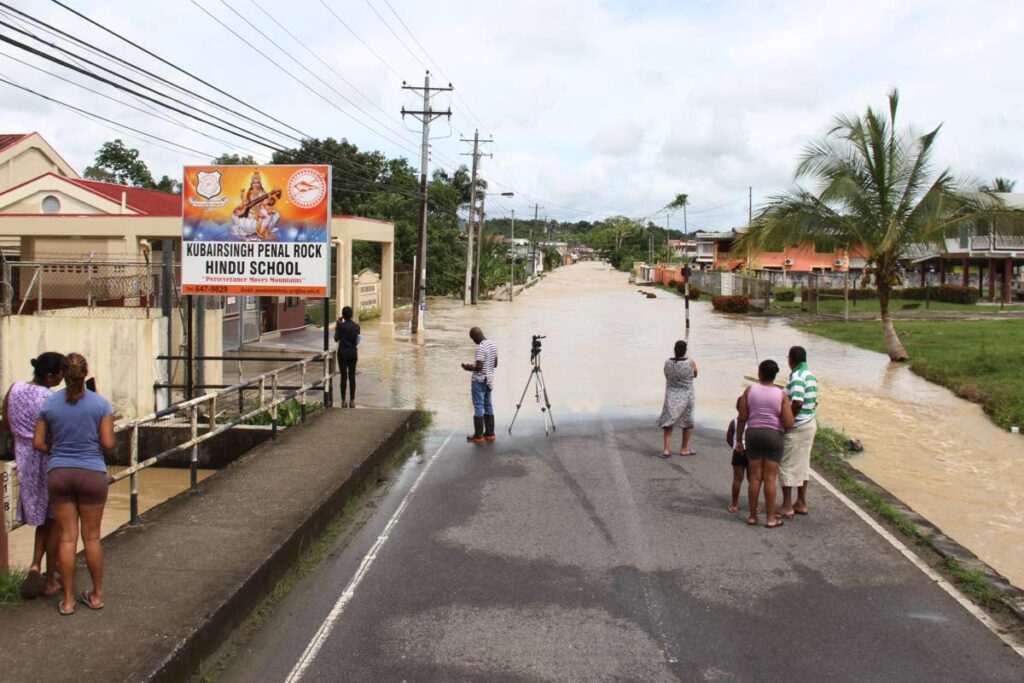Forecasting future weather

Water plants shut down again this week because of excessive turbidity –the muddy water that clogs water filtration systems, – leaving thousands of households without running water in the north and east of Trinidad and in Tobago.
TT's fragile water-treatment systems are proving no match for even incremental changes in rainfall patterns as floods swamp the usual lowland areas and new flood zones develop with alarming regularity and in unpredictable areas.
Conversations about fixing or replacing ancient water-management infrastructure remain relevant, but TT must move beyond clean up and support to rethink how we prepare for more extreme weather patterns.
That was the message that Barbados' Prime Minister Mia Mottley brought to COP27 on Monday, where participants at the climate change conference acknowledged the speed and danger of changing weather patterns.
"I don't need to repeat the horror and the devastation wreaked upon this Earth over the course of the last 12 months since we met in Glasgow," Ms Mottley told the assembled world leaders.
"Whether the apocalyptic floods in Pakistan or the heatwaves from Europe to China or indeed in the last few days in my own region the devastation caused in Belize by Tropical Storm Lisa or the torrential floods a few days ago in St Lucia. We don't need to repeat it, because a picture spoke a thousand words."
Barbados's PM is well aware of the effect that climate change will have on vulnerable Caribbean islands and territories which are threatened by coastal land loss through rising sea levels. One alarming projection suggests that much of The Bahamas, including much of Grand Bahama, including Nassau, could be seriously threatened by 2050.
Ms Mottley's home country faces the loss of waterfront land, increased flooding and risk to ground water on an island that's largely made up of permeable limestone and hardened coral.
The Barbados PM called on energy companies to commit ten per cent of their profits to create a loss and damage fund that addresses what the most vulnerable countries will face because of climate change.
There have been small steps forward in this direction. The IMF has established the Resilience and Sustainability Trust, a funding facility of US$50 billion to help debt-laden countries assess and manage climate-change risk.
TT has just experienced a foreshadowing of a very different climate future of extreme weather. Clearly we are not ready. We struggle to deal even with “normal” flooding and landslides.
It's time to re-engineer our drainage systems and riverine controls, to examine our most vulnerable coastal regions and plan for their conservation.
Planning our weather response must also leapfrog current conditions to consider the climate of 2050 and beyond.
Tied inextricably into that strategy must be an acknowledgement of this country's own responsibilities and participation in fossil-fuel exploitation and the poor management of emissions contributing to global pollution.


Comments
"Forecasting future weather"